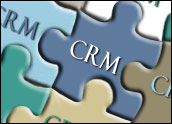
One of the great conundrums about CRM is the disconnect between its stated intention and what it’s usually really used for.
Theoretically, CRM is supposed to help businesses build better and longer-lasting relationships with customers. In actuality, it’s usually used to simply manage customer data as a tool for sales. The idea of really becoming customer-centric takes a back seat to more practical, commonplace business needs.
It’s hard to argue that this is somehow wrong, although it does represent a missed opportunity. It’s the embodiment of the idea of CRM as an IT purchase vs. CRM as a discipline.
But if this approach is yielding the results a business is after, who cares what pundits or outsiders say about it? If remaining in CRM’s first gear works, then great.
But CRM represents a healthy investment, and it makes no sense to ignore some of the return on that investment. Think about the opportunities you’re missing if you treat CRM as merely a sales tool and not as a catalyst for changing your business.
Here are three opportunities you’ll miss if you use CRM merely for SFA:
The Chance to Align Your Business Around Unified Customer Data
Cooping up data within the sales department means you’re missing the opportunity to address the classic problem of sales and marketing misalignment. By sharing information, the two sides have a chance to use real data to decide what a qualified lead looks like. It also provides the vehicle by which sales and marketing can close the loop and nurture leads to maturity rather than allowing them to drop if they’re not ready to buy.
Having a complete customer record is even more important for service and support. The ability to quickly understand the customer’s unique conditions and his history with your company will allow you to make the customer’s support experience better, and it’ll make it easier for your agents to solve his or her problems, shortening call times and ultimately saving your business money.
The Chance to Help Your Business Shift to Serve the Social Customer
I’m not saying that your business has to make the shift to full-fledged social CRM just yet. But the customer has already changed, using social media to investigate purchases, compare notes with other customers, and to engage with businesses. That’s a lot of new conversations that could have data that’s useful to you — but without a way to capture it and share it within the business, it’s going to waste.
The first step toward social CRM is this collection of social media data. That’s not necessarily a sales function, and if your CRM usage is confined to SFA, that means that data that marketing and support could use is slipping away.
The Chance to Maximize the Value of Each Customer
Since marketing and service are the keys to customer retention and loyalty, it’s critical that these aspects of the business are part of your CRM equation. It’s a major mistake to see CRM as merely a tool for customer acquisition; it goes beyond that to help maximize the value of that customer over his entire time with your business.
With CRM, you can understand each customer’s needs and buying patterns based on past history — but the only way to make this happen in a coherent manner is to arm your entire business with the data that sales collects.





















































